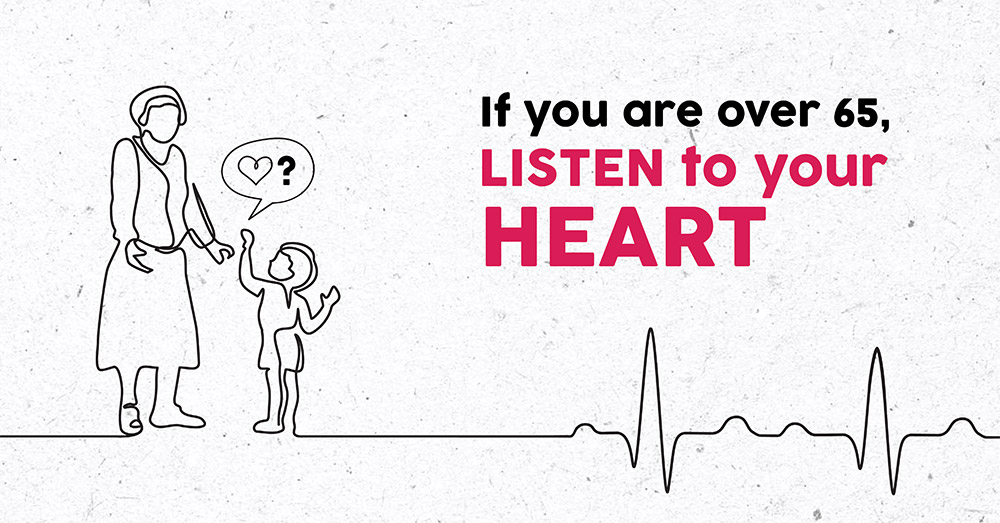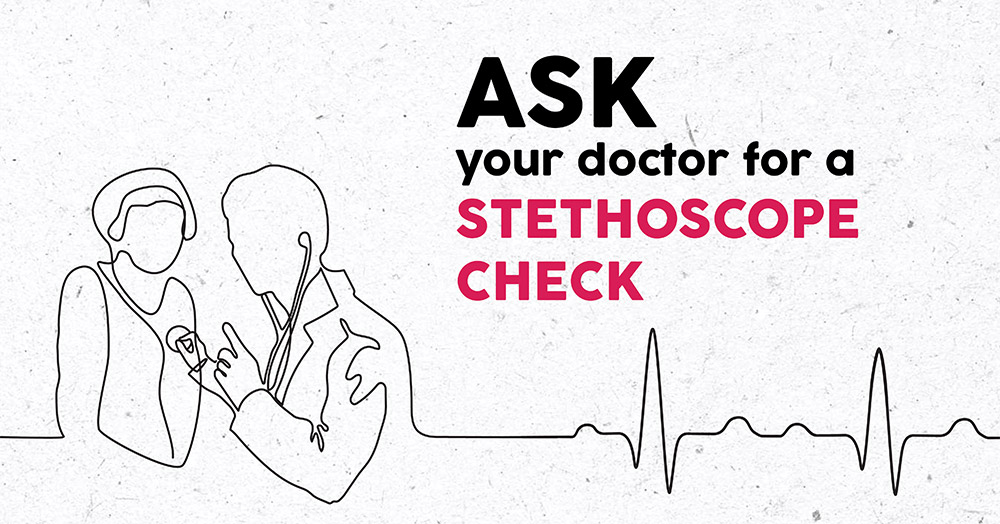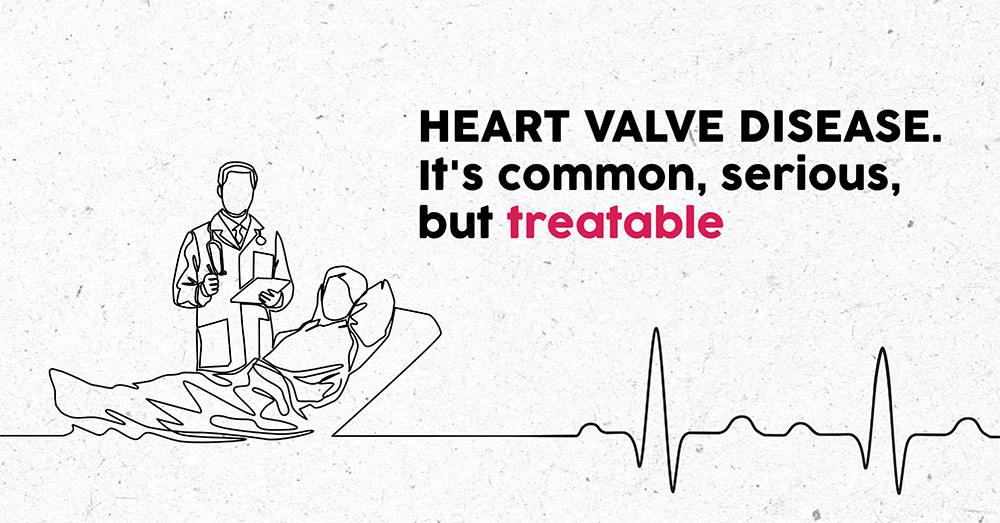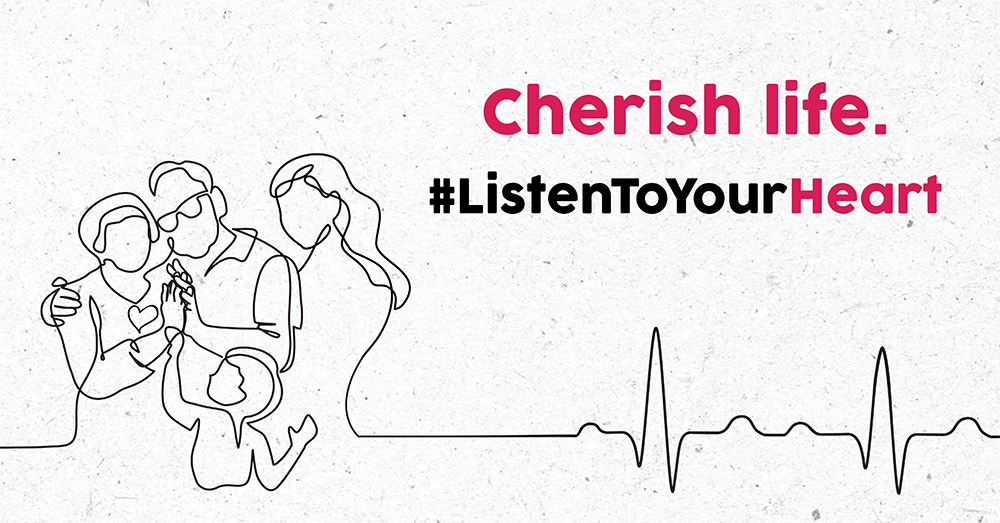
This year’s Heart Valve Disease Awareness Week aims to build awareness of symptoms and improve diagnosis, treatment and management of heart valve disease globally.
Share the message:
Listen to Your Heart
If you are over 65, ask your doctor for a stethoscope check at least once a year.
Heart valve disease is common, serious, but treatable.
Follow the campaign using #ListenToYourHeart #heartvalveweek20
Why creating awareness about Heart Valve Disease is so important
Heart Valve Disease Awareness Week is important, not only to raise awareness of the disease but also to make the population more aware of the symptoms so that they can seek the help they need at the right time. It is also important that clinicians provide their patients, especially those who are over the age of 65, with regular stethoscope exams as these are the key to detecting heart valve disease.
What is Heart Valve Disease?
Heart valve disease is a common, serious, but treatable condition which is particularly associated with ageing. It is the name given to any malfunction or abnormality of one or more of the heart’s four valves, affecting the flow of blood through the heart.
Know the Symptoms of Heart Valve Disease
2020 European Heart Valve Disease Survey
- Public awareness of heart valve disease remains low. Less than 6% of respondents knew what heart valve disease is.
- Few respondents would seek medical advice if they experienced key symptoms of aortic stenosis, suggesting that early detection opportunities could be missed
- Importantly, there continues to be inequality in stethoscope use throughout Europe and across genders. As stethoscope checks are a key initial screening method for detection of heart valve disease, this lack of consistency may leave many patients undiagnosed.
“The Survey demonstrates clearly that our older population is a key, yet underestimated, contributor to the effective functioning of our communities, families and economies, so improving the awareness, diagnosis and treatment of heart valve disease will benefit us all,” commented Wil Woan, Chair of the Heart Valve Disease Patient Council of the Global Heart Hub. “Our senior people selflessly confined themselves to protect the health of others during COVID-19; now it is time to repay them by ensuring that they receive the treatments that will transform their quality of life and lower their vulnerability to future pandemics and other significant infections.”
Get Involved
To join the campaign or for more information, please email info@globalhearthub.org
Campaign Partners

The awareness week is led by the Heart Valve Disease Patient Network of the Global Heart Hub which includes:
- AEPOVAC, Spain
- Alliance du Cœur, France
- Croí, the heart and stroke charity, Ireland
- Cuore Italia, Italy
- Heart Valve Voice, Canada
- Heart Valve Voice, Japan
- Heart Valve Voice, UK
- Initiative Herzklappe, Germany
- Instituto Lado A Lado Pela Vida, Brazil
- Meine Herzklappe, Austria
- PACO, Mexico
- Street Doctor, Netherlands
Supported by:











